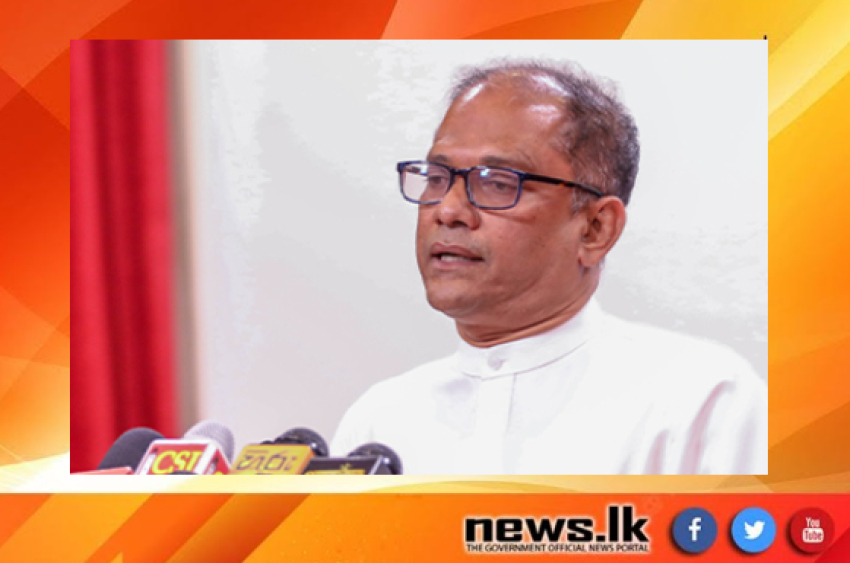State Minister for Social Empowerment, Anupa Pasqual, announced that, under the guidance of President Ranil Wickremesinghe, they are actively crafting a fresh legislation dedicated to improving the rights and well-being of differently abled individuals.
In his statement, the state minister emphasized the government’s commitment to ensuring that differently abled citizens are no longer considered a dependent population and that they should be treated as equal citizens, not relegated to second-class status.
State Minister Anupa Pasqual made these remarks during a press conference conducted at the Presidential Media Centre yesterday (08), cantered around the theme of ‘Collective Path to a Stable Country.’
Expressing his views further State Minister Pasqual said;
We have been entrusted with a significant mission aimed at empowering our society in the upcoming year. One of the most notable tasks assigned to our ministry is the empowerment of 1 million beneficiaries from underprivileged backgrounds. It is crucial to highlight that the 1.6 million differently abled community members have not received the empowerment they deserve thus far. Under the dedicated guidance of President Ranil Wickremesinghe, we are committed to completing these initiatives in the coming year.
To kick-start the International Day of the Disabled, observed on the 1st of December, we have organized special activities aimed at promoting the development of the differently abled individuals, just like any other segment of our society. Our initiative, named “Empo 2023,” involves differently abled individuals from across the island traveling by train from Colombo to Kandy, with a visit to the Dalada Maligawa and a special ceremony planned at the Peradeniya Botanical Garden. What’s truly remarkable is that the event will bring together differently abled communities from around the world, including China and Japan.
Additionally, at the recommendation of the President, we are actively working on a new bill designed to better the lives of differently abled people. Although discussions on this matter have been on-going since 2004, concrete progress has been elusive. We are now committed to drafting and presenting the bill to Parliament within the first quarter of the next year. Furthermore, we have organized a special conference on International Disability Day, set for December 1st, under the leadership of Justice Minister Wijeyadasa Rajapakshe.
Furthermore, it is a fundamental aspect of our government’s policy to ensure that the differently abled community is no longer considered a group dependent on others. To achieve this, we are actively working to enable their participation in the development and education sectors. The differently abled community should be treated as equals, with the same rights, technological resources and accessibility as the rest of our population.
As we embark on the journey into January, our ministry’s primary empowerment goal revolves around productivity. We are keen on exploring how our community can contribute to the overall Gross Domestic Product. Our objective is to establish a micro-level production network involving 1 million participants.
In addition, we have included proposals in this year’s budget. These proposals entail making the empowerment process mandatory, implementing a pension system and incorporating disability studies into university syllabi.
PMD




















